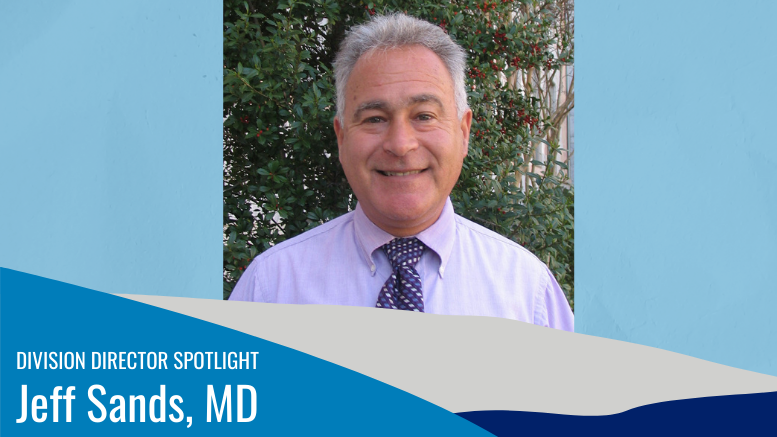The Department of Medicine Division of Renal Medicine is dedicated to basic and clinical research, professional education, clinical training, and innovative patient care. More than a dozen of the division’s faculty members are principal investigators on federal and non-federal grants.
Read our interview with division director Jeff Sands, MD to learn about his path to a career in medicine, his experience as a faculty member at Emory, and more!
Why did you decide to pursue a career in medicine?
I was always interested in science and doing research. As an undergraduate student at Harvard, I had the opportunity to engage in renal physiology research. The kidney is fascinating. I greatly enjoyed doing research, especially making discoveries and sharing them at meetings. This led me to pursue a career in medicine, and more specifically, in nephrology.
What led you to join the Department of Medicine?
I was recruited by Juha Kokko, MD and William Mitch, MD shortly after they arrived at Emory. I thought that it was a great opportunity to come to Emory at a time when they were rapidly expanding the research program. Both are luminaries in nephrology.
Can you share more about your experience and specialty area(s)?
Kokko and Mitch were very supportive of my research and actively fostered my career development. Robert Gunn, MD and Douglas Eaton, MD, both in the Department of Physiology, were wonderful collaborators and mentors. Emory had a strong program in renal physiology that included both the renal division and physiology. I felt that I had two homes at Emory: renal and physiology.
My research program focused on the urine concentration mechanism, especially urea transport proteins. I worked in close collaboration with Janet Klein, MD in the renal division. After many years of studying how the kidney concentrates urine and the mechanism by which vasopressin (ADH) increases urea and water transport, I turned my attention to the question of how to correct disorders in which the kidney cannot concentrate the urine (nephrogenic diabetes insipidus). I discovered that activation of AMPK could improve urine concentrating ability by activating water and urea transport and improve urine concentrating ability.
What is the highlight of your career at Emory thus far?
Pursuing my basic studies on urea and water transport to elucidate a novel therapeutic strategy to treat patients with nephrogenic diabetes insipidus. This led to the formation of a start-up company, Nephro DI Therapeutics. It would be extremely exciting if we can advance this therapy to the clinic as it is derived from our basic physiologic studies of the kidney. One always hopes that one’s basic research will lead to a therapy, so if this happens, it would be the highlight of my career.
What do you like most about living in Atlanta?
The weather. I grew up in Boston, so I love the warm weather in Atlanta.
What do you enjoy doing in your free time?
Watching professional sports.
If you didn’t pursue a career in medicine, what other profession would you have chosen?
Being a PhD research scientist.
Is there anything else you’d like to share?
Aside from my research, the other highlight of my time at Emory was having the idea of establishing Emory Dialysis. The outstanding team of faculty and administrators in the renal division made Emory Dialysis a reality and a tremendous success.
Related Links


Be the first to comment on "Division Director Spotlight: Jeff Sands, MD"